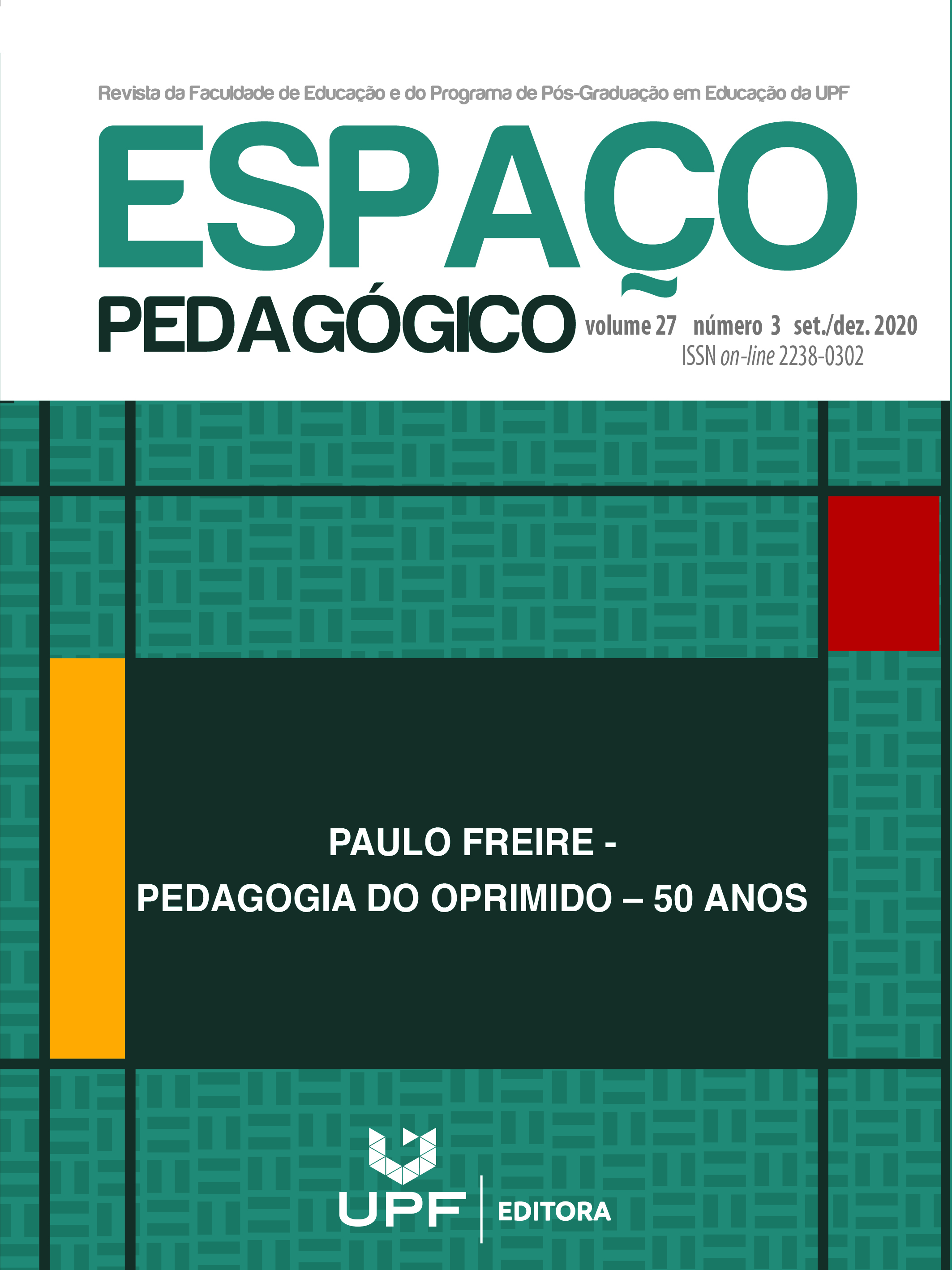The reception of pedagogy of the oppressed in Argentina: a hypothesis on the freirean influence on youth militancy in the 1970s
DOI:
https://doi.org/10.5335/rep.v27i3.12367Keywords:
Pedagogy of the oppressed. Youth movements. Liberation or oppression. Argentina.Abstract
The 50th anniversary of the publication of “Pedagogy of the Oppressed” inspires endless pedagogical, political and historical reflections. In Argentina, Paulo Freire’s theoretical presence was critical to complete the fertileground for the liberation movement of the 1970’s. The politicized youth performed various tasks that rangedfrom school and food support in shanty towns to urban guerrilla movements which had decided to take thepath of armed struggle. They were and saw themselves as heirs of the popular Latin American Nationalisms, The Cuban Revolution, and Liberation Theology. In Argentina, these movements had a very specific expression: apredominant affiliation to “Justicialism”. During the early 70’s “Pedagogy of the Oppressed” fostered a conscientization approach, laying the ground for the “liberation” of the peoples. This approach was unique and original among critical pedagogies. Its originality lied in two core issues: a) the oppressed was the central figure of theirown education as bearer of a “silenced culture” and b) new knowledge should be achieved through a dialogue between equal subjects. Within the political framework of the possible revolution, “Pedagogy of the Oppressed” had an almost exclusive role. The author still has it today.



